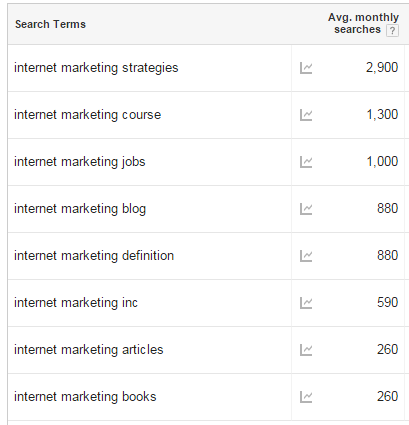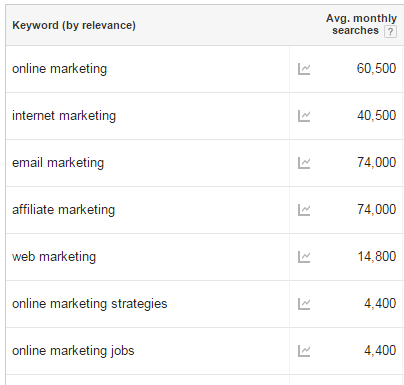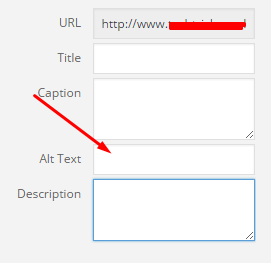SEO is one of the most popular traffic generation strategy because it ensures free and qualified stream of visitors to your site. And, we all know organic search has the best conversion rate across all online marketing channels.
Different types of websites need a different kind of SEO treatment. You cannot use the same stick and carrot strategy on every website. For example, SEO Strategy for an e-commerce website would be much different compared to doing SEO for a blog.
In this, blog post we are going to discuss the blog SEO in detail. For ease of reading and learning we have divided this guide into sub-parts:
- How blog SEO is different from website SEO?
- How to perform SEO on a blog.
- Decide niche & strategy
- Keyword Research
- Content optimization for keyword
- Important WP plugins for WordPress blogs Opitmization
- Link building
- Link Earning
- How is Blog SEO different from Website SEO?The blog is very different from other type of websites like e-commerce sites or business websites. Therefore, the SEO strategies for blogs should be different too to gain more traffic and visitors.The biggest difference is the content, in other websites, we put content at once, and keep on doing link building, and social marketing mainly to get traffic and ranking, but when it comes to the blog, every day or every week new content gets published on it that makes the SEO process different for it.A normal website with 10-15 pages normally needs one-time On-page SEO, and then link building and social media marketing. But, when it comes to the blog, content pages keep on increasing as we publish articles regularly. And, as the content is increasing on the blog, it needs regular on-page SEO, and continuous link building as well.In short, as a blog is totally different from a website, the SEO needs are different as well.
- How to perform SEO of blog?The basic goal and ideas are the same for SEO for any kind of website, but the approach of doing it is quite different when we do SEO of a blog.
- Decide niche & strategyStart taking into considering SEO factors from the day you start thinking to start a blog because if you start a blog on random niche without knowing that how profitable that niche is, you might be wasting your time and energy because I have seen many people start blogs on random topics. And, after a few months when they don’t get traffic and money, they quit.Therefore, always research a lot before you select a niche for your blog. To choose a profitable niche, you must research for the primary keywords of particular niches and then try to know that how many people searches for those keywords online, and what is the competition level. You can use tools like, Google Trends, Google Keyword Planner to get many ideas of it.Suppose you get niche keywords that get millions of searches, but the competition is too high, I would recommend you not to choose that niche because where there is too much competition, it takes a long time to get a little success and that too when you work very hard and implement some innovative ideas.Therefore, I would recommend choosing the niche that has medium competition, and a fair number of searches. So that you can build a profitable blog in less time, and cash out your efforts.
Once you selected the niche, you should set up your blog, and build a proper strategy to work. I am sharing a few things here that you should take into account:
Target Audience: If you are just writing articles and sharing all over social sites, and everywhere just to get more people to visit you, then you are doing all wrong.
You must target an audience base that is actually interested in what you sell on your blog. For example, if you are writing about blogging and SEO, then sharing your blog and blog posts with a medical student won’t do any good to you. Therefore, always target the people who you think, might be interested in your content and product.
Create Killer Posts: Posts are the base of a blog, and you must make the base pretty well to get the success. Before writing any content, think about why you are writing that?
Likely to:
Solve your audience’s query.
Solve the problem your audience is facing.
To educate your audience about the particular stuff.
Therefore, your posts must be great enough to meet above requirements. Always write detailed blog posts so that you can give all the information on a single page. If you keep sharing short posts interlinked to different posts as their next parts, many readers will distract.
Thus, writing a very detailed post on specific topics is good to go. For example, this blog post of mine is going to be more than 2500 words; it will contain all the basics and advanced stuff of Blog SEO so that readers like you can read it all in this single post.
Update the blog consistently
I have found that the blogs that are consistently updated with new content get more consistent and loyal readers. Hence, the more frequent you update your blog, the more traffic you will get.
- Keyword ResearchKeyword Research is one of the most important tasks of blog SEO. There are three phases through which you can find out profitable keywords.Find the keywords: The very first thing you need to do is to find out the keywords that can bring traffic.The easy ways of finding out are by searching some related term in Google, see at the bottom of the search page and collect those keywords to make the list of keywords.For example, if you search Internet Marketing you get these related searches at the bottom of the Google Search Page.

You can keep these keywords in a list. And move to another way of getting few more keywords.
The other way you can try out is, Google Auto Suggest. When you start typing something in Google, it suggests a few popular related search terms in a drop-down box.

You can keep these keywords in the same list as well. For extracting keywords out of auto complete, I will suggest using a tool like Ubersuggest
Now, you can visit a few blog posts from the top ten results on the topic you are working on. As we are taking Internet marketing topic into consideration, so visit a few blog posts on this topic, and figure out which keywords they are targeting. That you can find out by checking out the post’s Meta Tags and the content.
Additionally, you can also visits, Facebook groups, forums, Google+ communities to see what people are discussing in Internet marketing. You can choose a few terms from there as well. Try to get keywords from those posts that are having some engagement in terms of likes, comments, etc.
Also try Buzzsumo to find out popular posts in your niche
Finding out the search Volume
Now, you have an enormous list of keywords related to the topic you are working on. Its time to find out the search volume of those keywords.
You can visit Google Keyword Planner to check the search volumes. I have entered a few keywords, and it showed their search volumes

And, the best thing about this tool is that apart from the seeded keywords, it also displays a list of related keywords and their searches as well.

Now, as per the topic and keyword research, choose a 3-4 relevant keywords.
Analyze Competition: Now you have the most searched keywords with you around your topic,, next step is to analyze the competition that you can find out by using Long Tail Pro Keyword tool. That has a column Keyword Competitiveness, which tells you how competitive a particular keyword is. Below the KC 30 supposed to be good to work on.
- Content optimization for keywordNow as you have the list of good keywords with a fair number of searches as well as medium or low competition in organic search, you should write and optimize your post around those keywords.The number of keywords you choose is up to you. I suggest 2-3 keywords are enough per blog post, in which one keyword will be the primary target, and other two will be the secondary targets.There are certain important places where you must put your keywords:Title: Title is an imperative part of an article. It should not only SEO optimized, but it should also be compelling enough to grab more eyeballs and clicks when it is shared on Social sites, or viewed in SERPs.
When you write Title for a blog post, make sure you keep it within 60-65 Characters (including spaces) because that is what Google and other search engines read, and extra texts get trimmed. Always, keep your primary targeted keyword at the beginning of the title as that impacts search engines algorithm the most.
For example Internet Marketing Strategies for Noobs
In the above title, the keyword is Internet Marketing Strategies, which is placed in the beginning.
URL: URL should contain your primary keyword as well. In the URLs, you should try keeping the target keyword at the beginning just like we do in Title. In WordPress, URL is auto generated using the Title.

But, if you want to customize it, then you can use Edit button.

Content: Never try to stuff too many keywords in the content to optimize it because it steals the essence of the article, and make it a content written for search engines only.
Content should always be written for the users first. Follow the below-mentioned plan to use keywords in the content:
Use primary keyword in the first 150 words of the article along with a secondary keyword.
Use the primary keyword 2-3 times, and secondary keywords 2-3 times within a 1000 words article. You can increase frequency as per the content length. It will be great if you try to keep the primary keyword in H1, H2, H3 tags.
Use the Primary keyword in the last paragraph.
Always use keywords in a way that they don’t break the flow of the content.
Image Title and Alt Text: Use the keywords as Alt Texts for images. If you are using WordPress, you get the options shown in the below screenshot when you upload an image.

Search engines cannot read the images; they can only read the text. Thus, using Alt text and proper image name helps find them easily when someone searches for the images.
- Important WP plugins for WordPress blogsYoast SEO: This plugin helps add Meta title and description for all posts. It also offers Focus keyword option that gives scores to the post as how well it is optimized for the focused keyword.WP Smush: Page speed is now considered as a ranking factor, thus making the pages lighter and load faster is important. Mostly it’s the Images which makes the page load slowly because they are heavier than text. This plugin helps cut extra bytes from the images without degrading the quality.Super Cache or WP Total Cache: Cache plugins helps blog load faster for returning users. Therefore, using such plugins is recommended.Social Sharing Plugin: Social Sharing plugin is a must as it makes easier for users to share the content on their social profiles in just two clicks.
- Link BuildingLink building is one of the most important parts of SEO strategy. There are many ways you can build quality links to your blog and individual blog posts.Blog Commenting: One of the easiest ways to build quality links to your blog is by doing blog commenting. You need to find out the blogs that offer dofollow links in the comments and start reading their blogs, and publish the thoughtful comment. Though you comment for the link, your comments must make sense, and look natural.Guest Blogging: Matt Cutts once said that the Guest blogging is dead for SEO, but you should not be panic because that was said for those articles that just posted to get links without adding any value to blog or readers.If you write an awesome article and get links in the author bio, it won’t hurt your site, rather helps in search rankings. One of example you can see on Teslathemes’ blog where a guest post is published that adds a lot of values to that blog. There the author got an editorial link that is safe and powerful too.
Therefore, always write killer guest posts, and publish on good and authentic blogs rather than publishing in article directories, and low-quality blogs.
Interlinking: Internal Interlinking is the easiest way to get links because you get links for your blog post from another blog posts on the same blog. It is good if you find some relevant old articles, and add links to your newer posts.
Also, I would recommend adding at least 2-3 internal links in every blog post you publish on your blog.
These are some popular techniques of building links. But, if you want more sources of building links, you should check out this post of Brian Dean as well.
- Link EarningLink Earning term has evolved recently when Google started encouraging for creating awesome content that everyone likes to link to.Link Earning is also a kind of link building but rather than building links, you devote more time to creating epic content, that many different bloggers like to link to direct their readers for further reference.I am a firm believer of Link Earning because I have been writing epic posts for my blog, and have got tons of natural links for free. Those links have added great value to my blog’s link profile making it rank well on search engines.
Conclusion
Blogs are different from other websites. Thus, the SEO needs are different as well. In this blog post, you have read everything that you need to do for blog SEO.
If you have any questions, feedback or suggestions, then please share via the comment form below.
























